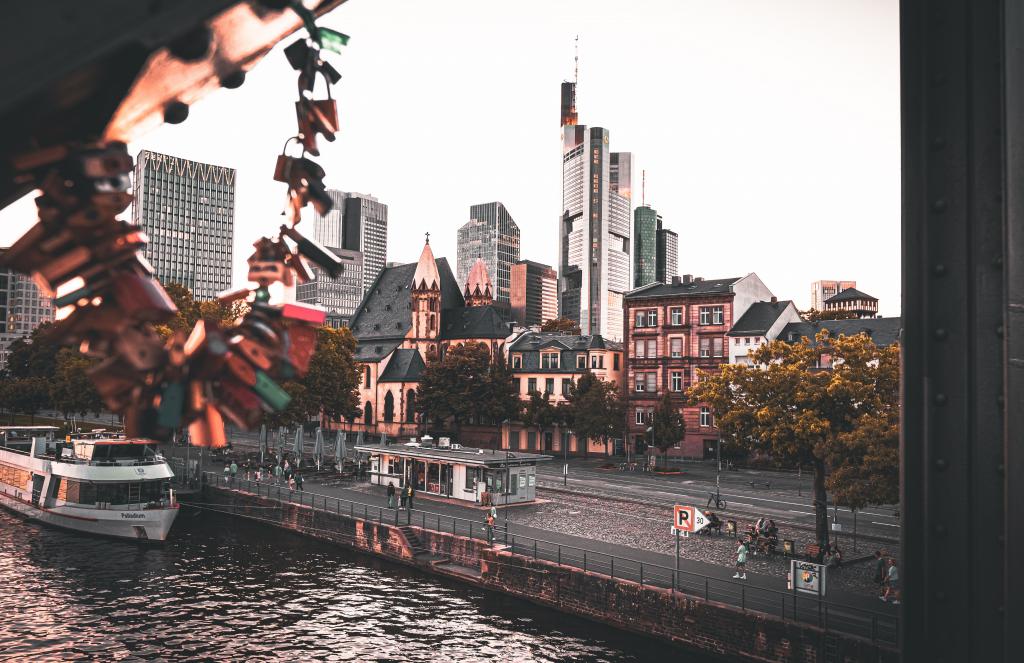Thessaloniki gets ready for its metro launch in November
The underground rapid transit lines have been under construction for almost two decades due to various project delays
 TheMayor.EU logo
TheMayor.EU logo 
A team from the University of Hohenheim designed an irrigation system, that uses the least amount of water in the most efficient way
Water is becoming more important as a resource, as European cities implement an increasing number of green programmes
On 11 August, Frankfurt Am Main announced the results of a study conducted in the city on the design of ‘smart’ urban irrigation systems. The study was conducted by a team from the University of Hohenheim, working in tandem with FES Frankfurter Entsorgungs- und Service GmbH (FES), the Green Space Office, and the Palm Garden (der Palmengarten).
The research focused on recording the water requirements of young trees using an array of digital instruments. Researchers developed a data-driven prototype showing promise for massive water savings.
Water is becoming an even more vital resource for EU cities as urban greenery programmes gain popularity across population centres. At the same time, green spaces are key temperature regulators for city micro-climates, yet they suffer from the adverse effects of rising temperatures and low rainfall.
This is why the team from the University of Hohenheim tried to design a smart irrigation system, that uses the least amount of water, delivered in the most efficient way possible. They used their data to develop an irrigation model for an entire city and projected huge water savings.
For the experiment, they used 18 soil measuring sensors on eight young ash trees: two in the Palmengarten and the rest in the Maastricht Ring (Europaviertel). The sensors measured the soil water potential over time, that is the force trees needed to pull water out of the ground. They also measured soil temperature and soil moisture. This is how they determined the irrigation requirements.
Freshly planted trees in particular have a high need for readily available water. A young ash, for example, needs to exert around 30 centibars of suction force, according to the experts in the Green Spaces Office.
The measurements in April 2021 showed that individual irrigation channels can be postponed or even suspended in the future. Projected to Frankfurt’s current 5000 young trees, the city can save up to one million litres of water per round of irrigation in spring.
According to the city, one of the linchpins of an operation like this would be the introduction of long-range radio sensors monitoring the trees. Then the infrastructure can fall onto FES – Frankfurt’s waste management company.
They have already done some similar work for the Green Spaces Office, the main authority on greenery maintenance for the city. The past few years FES watered trees on their behalf in the summer. They are also active in private green maintenance.
The irrigation could be carried out by the FES winter service vehicle fleet, converted into digitally controllable water trucks.
Environment officer Rosemarie Heilig explained: “The results of these tests are very promising. They show that we still use a lot of resources to maintain our urban greenery, which is so important and valuable for climate reasons.
This is an important finding, especially in times of increased water scarcity. In the future, digital technologies can help us to become even better and more efficient when it comes to environmental protection in our own living environment."

The underground rapid transit lines have been under construction for almost two decades due to various project delays

Now you can get your wine in Talence by paying directly in Bitcoin

That’s because the state has to spend money on updating the railway infrastructure rather than subsidizing the cost of the popular pass

Rethinking renewable energy sources for the urban landscape

The examples, compiled by Beyond Fossil Fuels, can inform and inspire communities and entrepreneurs that still feel trepidation at the prospect of energy transition

Now you can get your wine in Talence by paying directly in Bitcoin

The 10th European Conference on Sustainable Cities and Towns (ESCT) sets the stage for stronger cooperation between the EU, national and local level to fast track Europe's transition to climate neutrality.

At least, that’s the promise made by the mayor of Paris, Anne Hidalgo

The underground rapid transit lines have been under construction for almost two decades due to various project delays

At least, that’s the promise made by the mayor of Paris, Anne Hidalgo

Hostal de Pinós is located in the geographical centre of the autonomous region

Despite its church-y name, the district has long been known as the hangout spot for the artsy crowds

Urban dwellers across the EU are having a say in making their surroundings friendlier to people and the environment.

Forests in the EU can help green the European construction industry and bolster a continent-wide push for architectural improvements.

Apply by 10 November and do your part for the transformation of European public spaces

An interview with the Mayor of a Polish city that seeks to reinvent itself

An interview with the newly elected ICLEI President and Mayor of Malmö

A conversation with the Mayor of Lisbon about the spirit and dimensions of innovation present in the Portuguese capital














